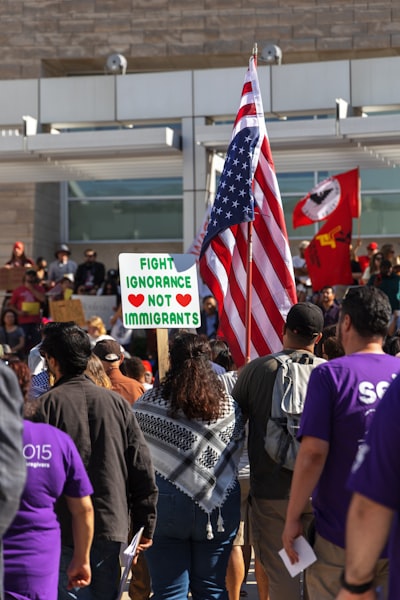Understanding the Latest Federal Judge Ruling on Deportation: What It Means for Immigration, Human Rights, and Legal Precedent
The recent decision by a federal judge to halt the deportation of eight immigrants to South Sudan — a country gripped by civil war — serves as a flashpoint in the ever-evolving debate surrounding U.S. immigration policy, deportation law, and refugee protection. As immigration enforcement and legal challenges intersect, concerned citizens and affected families alike are searching for answers to urgent questions: What rights do immigrants have when facing removal? How do court decisions shape the fate of non-citizens? What risks are involved in deporting people to war-torn nations?
Why Are Immigrant Deportations to Dangerous Countries So Controversial?
With political, humanitarian, and legal ramifications, cases like this spark robust public debate. Major talking points include:
- Legal rights during deportation: Recent court battles underscore immigrants’ ability to seek hearings before removal.
- Humanitarian concerns: Deporting individuals to conflict zones raises ethical questions, especially when intended destinations are unsafe.
- Presidential influence on immigration: Changes to deportation priorities under different administrations continue to shape lives — and headlines.
U.S. Immigration Law and the Right to a Court Hearing Before Deportation
One of the central issues in recent deportation cases, especially high-profile ones involving South Sudan, is whether due process requires individualized hearings before removal.
Key Points:
- Due Process and Legal Safeguards: U.S. law allows for expedited deportation for certain non-citizens with criminal convictions, but federal judges have at times paused these removals to ensure fair hearings.
- Supreme Court Involvement: The Supreme Court's decisions clarify — and at times, limit — immigrants’ rights, influencing how quickly deportations can proceed.
Human Rights Risks of Deporting Immigrants to War Zones
The U.S. State Department has issued warnings that South Sudan, embroiled in conflict, is unsafe for travelers — much less for forcibly returned immigrants who may lack family or support there.
Why Experts Are Concerned:
- Risk of physical harm, persecution, or even death
- Lack of government infrastructure and services to support newcomers
- Human rights groups cite obligations under international conventions not to deport people to dangerous conditions (principle of non-refoulement)
Who Gets Targeted for Deportation?
Many cases flagged by the Trump administration and continued debate under subsequent administrations involve immigrants with past criminal convictions. Yet, questions arise:
- Should time served and rehabilitation be considered before deportation?
- How does removal affect families, including U.S.-born children?
- Is it just to deport individuals to countries where they have no meaningful ties?
The Role of District and Supreme Courts in Shaping Deportation Outcomes
When lower courts, such as Judge Brian Murphy in Boston, halt or delay removals, and higher courts overrule them, the legal tug-of-war can leave immigrants in legal limbo. Key developments are tracked in:
- District court interventions
- Emergency Supreme Court orders
- Policy guidance from DHS and ICE
Policy Shifts: Trump Administration’s Legacy and Ongoing Impact
The period from 2016 to 2020 saw aggressive enforcement of deportation orders, especially for those with old criminal records, even if they have since rebuilt lives in the U.S. Advocates continue to monitor the evolving stance of the Biden administration and future administrations.
FAQ: Deportation and Immigrants’ Rights in the U.S.
Q: Can the U.S. deport individuals to countries where they have no ties?
A: Legally yes, but ethics, court challenges, and humanitarian pressures complicate such removals.
Q: What protections exist for immigrants facing deportation?
A: The right to a hearing and legal counsel, especially if there's credible fear of harm upon return.
Q: What is non-refoulement?
A: A principle in international law that prohibits sending individuals to places where they face serious danger.
Conclusion: Safeguarding Immigrant Rights Amid Evolving U.S. Deportation Law
As debates around immigration policy, deportation, and refugee protections intensify, cases like the halted South Sudan deportations prompt necessary reflection on the balance between national security, due process, and humanitarian responsibilities. Anyone following these developments — from legal scholars to families and activists — should stay informed about court decisions and changing policy landscapes. For deeper learning, explore resources from the American Immigration Council and Human Rights Watch for evolving updates on immigration crises and legal rights.

Comments
No comments yet. Be the first to comment!